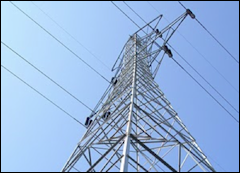
Dominion Virginia Power is coming under fire from all sides as it tries to balance reliability, cost and sustainability.
“Keep the big boys honest,” was the campaign tag-line of populist “Howlin” Henry Howell when he very nearly won his bid for the governorship in 1973. By “big boys,” he was referring to executives of VEPCO, a predecessor company to Dominion Virginia Power. Four decades later, it appears that Howell’s rhetoric is coming back in style.
As the Associated Press summarizes:
Two out of four GOP primary contestants are openly hostile to Dominion and want to ban the company from making campaign donations. An insurgent Democrat is indicating he’ll make the company’s broad political influence a significant campaign talking point. …
“Somebody has to drag these vampires into the sunlight,” said GOP candidate Denver Riggleman, a distillery owner who battled Dominion over eminent domain issues. Riggleman had a Capitol news conference Tuesday to pledge support for longshot legislation that would prohibit regulated monopolies from making campaign contributions. …
Republican Corey Stewart, a one-time Trump campaign chairman in Virginia, said if elected he would support the ban on donations from regulated monopolies as well and would look at other areas to curb the company’s political influence. “They have virtually every member of the General Assembly in their pocket,” Stewart said. …
On the Democratic side, former Congressman Tom Perriello is also making Dominion’s influence a campaign issue. “Tom believes our political system has become too rigged in favor of big corporations and special interests and that Virginians suffer when the very politicians charged with regulating monopolies accept campaign contributions from them,” his spokesman Ian Sams said.
Is Dominion worried? Spokesman David Botkins sounds confident the company can weather the latest storm: “Our 2.5 million customers tell us they are very, very happy with their low rates, superb reliability, cleaner air, and an energy independent Virginia.”
Bacon’s bottom line: Bashing the electric company is a time-honored tradition in the United States, and Virginia is no exception. Dominion Virginia Power is in politicians’ cross-hairs for multiple reasons. Environmentalists say the company is moving too slowly in adopting renewable fuels, and they say it should spend more to clean up its coal ash ponds. On the flip side, electric customers charge that a freeze in base rates negotiated a year ago locks in excess profits. Then landowners in the path of the proposed Atlantic Coast Pipeline, a project managed by parent company Dominion, as well as proposed new electric transmission lines, are up in arms. Meanwhile, there’s no denying that Dominion enjoys enormous clout in the General Assembly and the McAuliffe administration. It should surprise no one that Dominion has become a target of populist wrath.
As the debate unfolds, however, voters should bear in mind that Dominion, like Appalachian Power Co. and Virginia’s electric co-ops, must strike a balance between three broad goals: keeping rates low, keeping the lights on, and transitioning to cleaner fuels. Accomplishing all three requires trade-offs, making it impossible to fully satisfy all constituencies. If you add a fourth goal — promoting economic development — the tradeoffs become even more complex.
Dominion’s No. 1 priority is keeping the lights on. Let’s face it, nothing enrages people more than going without electricity for more than an hour or two. But ensuring reliability does not come free. By burying vulnerable distribution lines underground, for instance, the company can reduce the number and length of outages due to storms. That costs hundreds of millions of dollars, driving rates higher. How much are electricity customers willing to pay for an additional increment of reliability?
Similarly, the company could move more aggressively to embrace solar and wind power, but the intermittent nature of renewable energy sources threatens the stability of local distribution circuits. Before integrating renewables on a large scale, Dominion is proceeding with a series of small pilot projects to test the impact on local distribution lines. If you value reliability, you’re probably happy with the approach. If your top priority is combating climate change, you’re probably not.
Meanwhile, the company has been restructuring its transmission grid in response to federal clear air mandates — first to reduce emissions of mercury and other toxic minerals, and more recently to reduce emissions of carbon dioxide. Meeting those goals has required a massive shift from coal to natural gas and renewables. That entails not only building new power plants in new locations and importing electricity via wholesale markets from outside the state, it requires erecting new transmission lines to handle the re-routed electricity flows. Landowners understandably don’t like looking at electric transmission lines. But you can’t stick with the old electric grid and also have clean energy.
That’s not to say things can’t be done differently. Arguably, Dominion Virginia Power cut a sweet deal for itself when the legislatures froze its base rate. Arguably, the company could be more cooperative in allowing homeowners and small businesses to work with third-party providers of clean energy sources. Arguably, Virginia’s eminent domain laws could treat landowners more justly. Arguably, the system could be tweaked in many ways. But it always comes back to setting priorities and making tradeoffs. There is no way to satisfy everyone.
Let’s hope Virginia’s candidates for higher office keep that simple truth in mind as we enter the campaign silly season.


